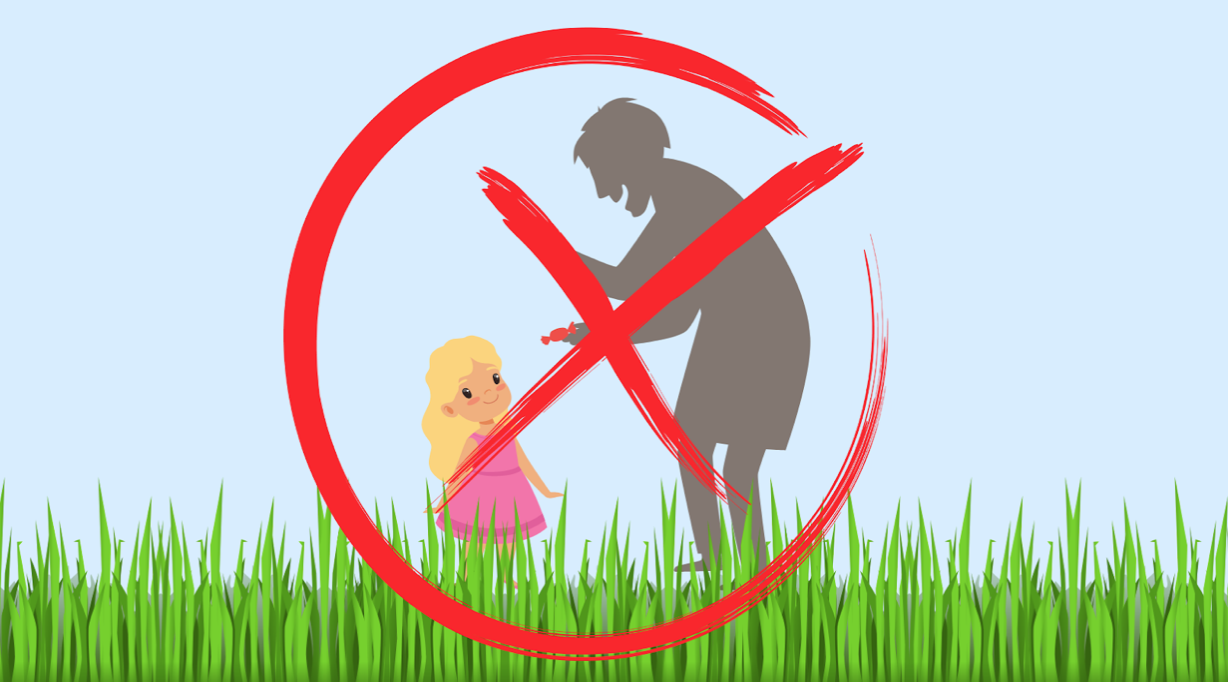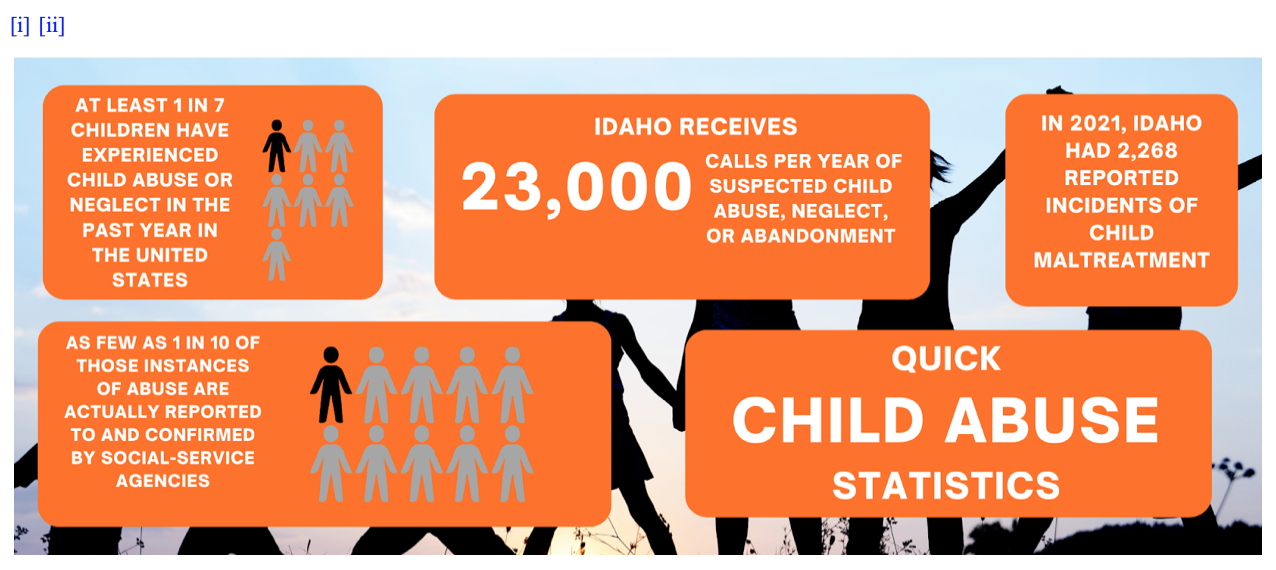KIDZ CAN INTERN

Class of 2023
Studying at Brigham Young University. Kyra makes you smile whenever she is around! Her bright and fun character connect really good with kids. It was so good to have her help fundraise at booth events. At these events she always knew how to be open and understanding with youth. Kyra helped write articles, design and reorganize our “Kidz Can Passport”. She helped lead projects and make posts on social media accounts. Kyra was among our first interns and will forever be a large part of Kidz Can.
Educating Children On Sexual Safety
and Healthy Relationships to Prevent Abuse
By Kyra Matthews
Introduction:
When I was around 10 or 11, I became friends with a new girl in my class. I knew that she came from a bit of a rougher background. She would come to school with cigarette smoke smell stuck on her clothes and she didn’t have the greatest relationship with some members of her family. Unfortunately, she was one of hundreds at my school and one of dozens in my class that came from similar situations.
One day, I had her and another friend come over to my house. I can’t remember the reason anymore. It may have been to hang out or it may have been for a group project. I don’t remember much about the experience. But I do remember one thing: Sitting in my room, we all started talking when, seemingly out of the blue, my new friend said she had a boyfriend. And not just any boyfriend, but a 40-something-year-old boyfriend with a mustache. My other friend and I sat shocked as she pulled out a picture of him and continued talking about him a little.
Even back then, I knew something about this situation was wrong and I told her so. But despite my misgivings about it, I didn’t know what to do other than tell her I thought it was weird. I didn’t tell anyone about it and it ended up never coming up again. We eventually grew apart as classes and schools changed.
A year or two later, when we were in middle school, I ended up hearing that she had been raped. She ended up being pulled out of school by her mom and homeschooled and I never saw or heard from her again.
It is one of the biggest what-ifs of my life. What if I had been a better friend? What if I had told someone? What if I had pushed harder to help her get out of that situation? What if I had known what to do?
Educating Children about Sexual Safety and Healthy Relationships:
At what age should we start educating children about sexual safety and relationships? In today’s day and age, this is a fairly debated topic. On one hand, we don’t want to make children grow up too early or we don’t want them to embarrass us in public by loudly talking about their genitals. On the other hand, one of the reasons children are often so vulnerable to crimes of this nature is their lack of knowledge of what is happening. They are told they are playing a game or that they are being like an adult.
One child rapist reported that if a child talked about his mother and father (with him, the predator), or knew what different body parts were and used the correct terms, he left them alone (Sprengelmeyer and Vaughn, 2000).
So, right there are two things that can help prevent abuse: healthy relationships and knowledge. And it implies that we should start trying to teach our children about both sooner rather than later.
Healthy Relationships:
Humans are not meant to be islands. That’s why things such as healthy families, friends, and other relationships are so important. They are some of the things in our lives that can either make or break us, as many people can attest.
But even with the risks that come with being close to other people, being healthily connected to other people has been shown to lower rates of anxiety and depression, and to raise self-esteem and empathy. These trusting and cooperative relationships are also ideal for creating safe environments to talk about hard subjects such as abuse.
One way to connect with our children and demonstrate healthy relationships is through how we communicate with them. UNICEF (UNICEF Parenting, 2023) gave some tips to improve your communication skills with your children. Here are some of them:
- Active listening
Be an active part of your conversations. Make eye contact, ask questions, and give appropriate physical cues to show that you are listening.
- Reflective listening
Another way to show that you are listening is by paraphrasing what your child says and repeating it back to them to check for understanding.
- Speaking clearly
By using age-appropriate language and speaking clearly, your children with feel both respected and included.
- Explaining feelings
When you can help your children understand not only your feelings but also their own, children are able to feel like they can better understand not only you but themselves.
- Using ‘noticing’ statements
Instead of saying “Good job!” try being more specific with a ‘noticing statement’: “I noticed that you put all of your toys away after playtime. Nice work!” These help children to know what they are actually doing good at and to know how you appreciate them.
- Having fun together
This is important, no matter the age of the child, and is one of the best ways to improve your relationship!
- Focusing on behavior
If you are upset with your children about something, make sure that your criticism and comments are directed at their behavior and not at them as a person.
- Leading by example
Parents are children’s introduction to the world. What your child sees you do is as important as what they hear you say. If you want to teach them how to have a healthy relationship with others, try to demonstrate it yourself.
Knowledge:
We come from a culture where talking about our “private parts” is often taboo or often done in a sexual manner. Because of this, many children don’t know what to call these parts of their bodies or refer to them by the many different slang words we use for them. In a study done in 2008, it was found that only 10% of children in Florida preschools (ages 4-5) knew what a penis, vagina, or breasts were and what they were called and only 20% knew what a buttocks or a butt was and what it was called (Kenny and Wurtele 2008).
When children only know these slang words or don’t know anything at all, it can be hard for them not only to open up to a trusted adult about what happened to them but also for a trusted adult to recognize what they are opening up to them about. If a child comes up to you and says that someone touched their cookie, would you know that the child was talking about their vagina? Likely not.
On the subject, Dr. Arsala Bakhtyar, a pediatrician with Beaumont Healthcare Center Canton was very adamant:
“Bakhtyar says using common euphemisms like “front,” “bum” and “wiener” is OK when a child is between the ages of 18 months and 2 years old. But, from then on, she advises parents to use the anatomically correct terms. “(Parents) should teach them as they’re teaching their eyes, nose, mouth (and) ears, just the way they have to tell them vagina, vulva, penis, buttocks … everything,” she says. “I don’t think that parents should make it sound like it’s something that we have to be ashamed of or embarrassed about” (Marini, 2022).
Conclusion
Both of these two things together cannot prevent all child abuse, but, they can help our children be better protected and better equipped to handle life as they have a better understanding of themselves and a more secure connection with people they can trust. It can also help our children to know better how to talk to someone in situations where abuse has occurred and they need help and support, like what my friend and I needed when I was younger.
References
Better Health Channel, 2022. “Strong Relationships, Strong Health”, Retrieved May 6, 2023, https://www.betterhealth.vic.gov.au/health/healthyliving/Strong-relationships-strong-health
Centers for Disease Control and Prevention, 2022. “Fast Facts: Preventing Adverse Childhood Experiences |Violence Prevention|Injury Center|CDC.”, Retrieved May 6, 2023, https://www.cdc.gov/violenceprevention/aces/fastfact.html.
Kenny, Maureen C., and Sandy K. Wurtele. 2008. “Toward Prevention of Childhood Sexual Abuse: Preschoolers’ Knowledge of Genital Body Parts.”. Retrieved Apr 25, 2023, (https://digitalcommons.fiu.edu/sferc/2008/2008/18/).
Marini, Miriam. 2022. “Names Parents Give Private Parts When Talking to Kids.”Metro Parent Blogs. Retrieved Apr 25, 2023, https://www.metroparent.com/parenting/advice/names-parents-give-private-parts-talking-kids/.
Sprengelmeyer, M. E., and Kevin Vaughan. 2000. “Stalking Children Imprisoned Molesters Reveal Dark Secrets, Tell Colorado’s Parents How to Protect their Children.” Rocky Mountain News (Denver, CO) Retrieved Apr 25, 2023, (https://search.ebscohost.com/login.aspx?direct=true&AuthType=ip,sso&db=edsgin&AN=edsgcl.81071310&site=eds-live&scope=site&custid=s8406107).
UNICEF Parenting. 2023. “How to communicate effectively with your young child.”, Retrieved Jul 10, 2023. https://www.unicef.org/parenting/child-care/9-tips-for-better-communication.
Look Out For Strange Behavior, Not Stranger Danger

By Kyra Matthews
Stranger Danger! It’s one of the first things many kids learn. This term arose in various campaigns which ran in the USA in the 1960s to help protect kids from child abuse and abductions.
However, while some strangers can be dangerous, the majority of child and youth abductions and abuse happen because of family or friends. Of the average 2300 child abductions every day in the US 78% of them were by a non-custodial parent and 11% were by another family member. So only 1% were by strangers. And with sexual abuse, 91% of all abuse happens at the hands of someone our children are familiar with.
How can we help our children stay safe then? We can’t teach them to distrust everyone, being able to have trusted relationships is essential.
We can teach them about Strange Behavior Danger instead. By teaching what behavior is unsafe, kids can learn how to judge who or what is a safe person or situation, no matter if it is coming from a stranger or someone close to them. Eli Harwood, a licensed therapist known as the Attachment Nerd, made a list of 6 strange behaviors for us to teach our children to look out for:
- Someone asking you to keep a secret
- A grown-up giving you special attention or gifts but not to your peers in the same way
- A grown-up or a peer intimidating you, putting you down, or making threats
- If someone gives you creepy looks, touches, or comments
- Anyone asking you to break a rule (especially a grown-up)
- Anyone doing any behavior that violates body safety rules (Especially pressure to show or touch or see any genital or private areas of the body, or watch videos of any of those things)
(Eli Harwood, 2023)
Even though we hope that they will never have to deal with any of these things, as we teach our children what behaviors or actions are dangerous, we can help prevent these situations and better help our children figure out who they can trust!
Sources
Eli Harwood, 2023, Facebook Watch, https://www.facebook.com/watch/?v=486437493495573
ABC News. 2017. “Experts warn against teaching the phrase ‘stranger danger’.”, Retrieved Jul 13, 2023. https://abcnews.go.com/Lifestyle/experts-warn-teaching-phrase-stranger-danger/story?id=46427626.
CDC. 2022. “Fast Facts: Preventing Child Sexual Abuse |Violence Prevention|Injury Center|CDC.”, Retrieved Jul 13, 2023. https://www.cdc.gov/violenceprevention/childsexualabuse/fastfact.html.
Child Find of America. “Facts & Stats.” Blogs. Retrieved Jul 13, 2023 https://childfindofamerica.org/resources/facts-and-stats-missing-children/.
Child Lures Prevention. 2022. “Stranger Danger: 4 Common Myths.” Blogs. Retrieved Jul 13, 2023 https://childluresprevention.com/resources/stranger-danger-myths/.
Mandatory Reporting in Idaho

By Kyra Matthews
As few as 1 in 10 instances of child abuse are reported to and confirmed by social-service agencies[iii]. Partially due to troubling statistics such as that, every state in the U.S. has what are called mandatory reporting laws- laws designating specific individuals whose legal duty it is to look out for child abuse and then report it. In Idaho, everyone is required to report known or suspected child abuse, neglect, or abandonment, with the exception of duly ordained ministers of religion[iv]. This includes doctors, hospital residents, therapists, interns, nurses, coroners, school teachers, daycare providers, social workers, relatives, friends, and private citizens (like you and me).
Reporting does not need to wait until abuse is proven. If there is reasonable suspicion, it is better to report it. Because of the difficulty of proving abuse and the potential of or very real harm that can come from abuse, all reporting should be made within 24 hours, or as soon as possible.
After reporting, a social worker will assess the case before deciding whether to document it for future reference or assign it to another social worker to perform a safety assessment. Reporting does not mean that the child will be removed from the home, but it does mean that the family may be visited by a social worker, who will determine if any action needs to be taken or if any support needs to be offered.
Sources
[i] https://cwoutcomes.acf.hhs.gov/cwodatasite/pdf/idaho.html
[ii] https://www.cdc.gov/violenceprevention/childabuseandneglect/fastfact.html
[iii] https://content.time.com/time/health/article/0,8599,1863650,00.html

